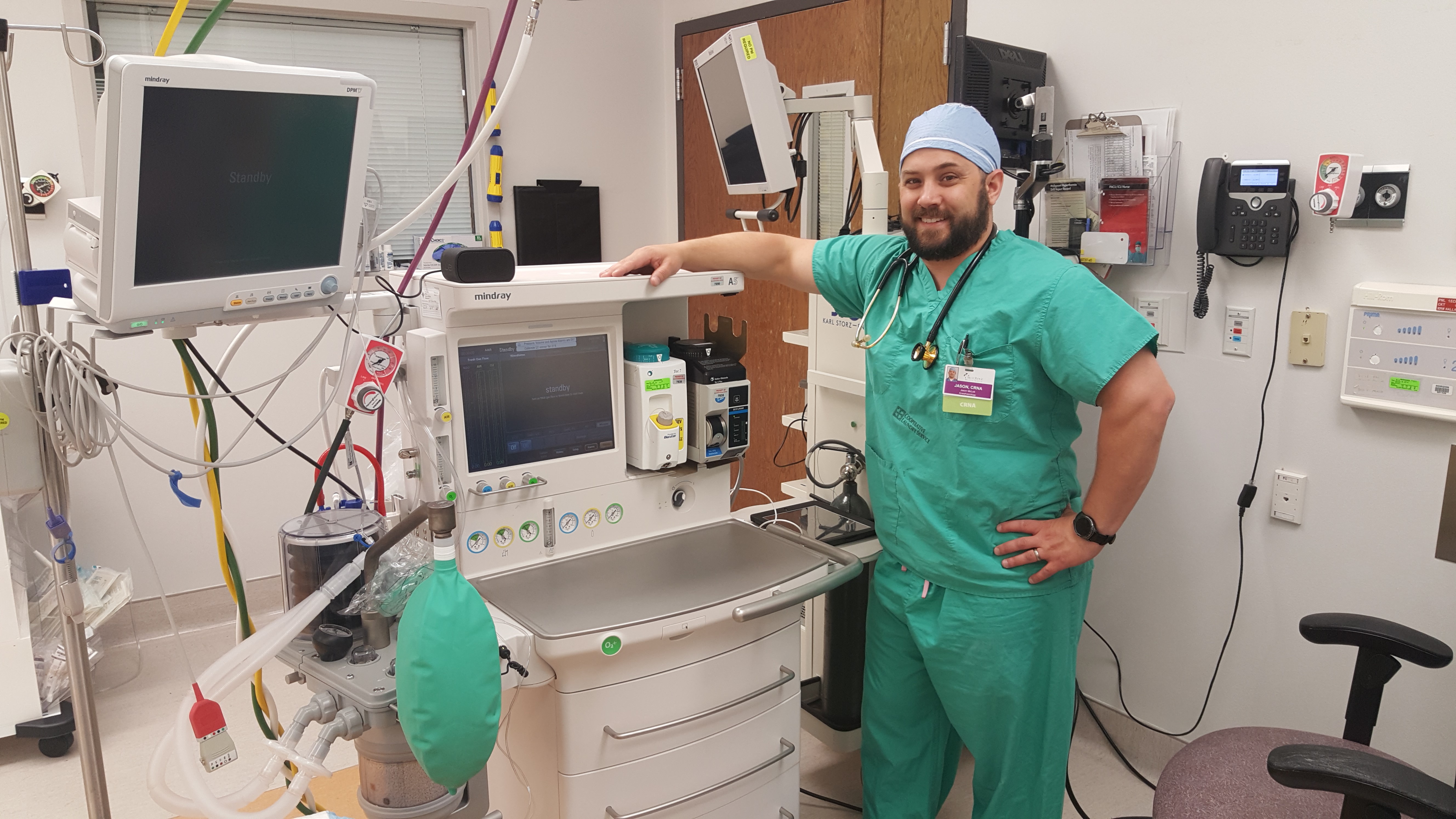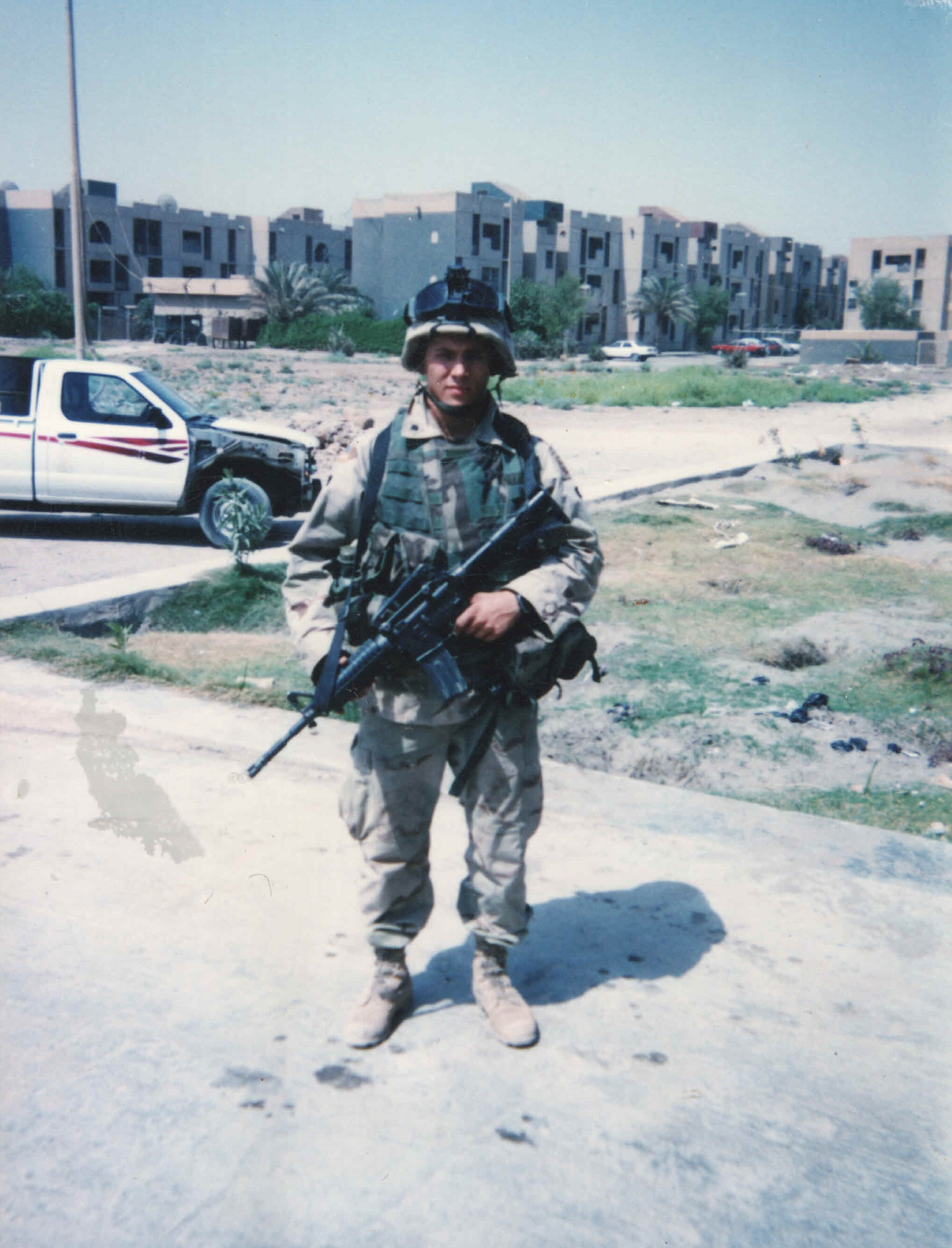Jason McLott Provides Life-Saving Anesthesia Services at Rural Hospital in the Blue Ridge Mountains
 Certified registered nurse anesthetist (CRNA) and U.S. Army Veteran Jason McLott makes it possible for residents living in rural counties of North Carolina’s Blue Ridge Mountains to drive only a short distance for surgery at the 26-bed critical access hospital in Spruce Pine, population 2,175. Certified registered nurse anesthetist (CRNA) and U.S. Army Veteran Jason McLott makes it possible for residents living in rural counties of North Carolina’s Blue Ridge Mountains to drive only a short distance for surgery at the 26-bed critical access hospital in Spruce Pine, population 2,175.
The hospital’s anesthesia services are provided autonomously by Jason and his CRNA colleague. They keep patients from driving nearly an hour to Asheville for a variety of routine and emergency procedures.
“Without CRNAs in our facility, this rural hospital wouldn’t be able to offer life-saving surgeries and procedures at critical times in a patient’s illness,” said Jason.
He recalled one such case in which a patient came to his facility with a hernia that caused a perforated bowel. Within an hour, the patient was in surgery and a significant portion of his colon was removed. The patient made a full recovery but Jason said his outcome may have been different if care had been delayed by a long drive to a larger hospital.
Jason said the totality of his education – from earning a bachelor’s degree in nursing to his anesthesia training – taught him the vigilance needed to be a safe anesthesia practitioner. His didactic education imparted him with the principles of anesthesia, while his clinical rotations taught him how to choose the appropriate anesthetic based on a patient’s physiology/pathophysiology and the surgery being performed. He said patients’ surgical care would be significantly affected without CRNAs at his facility.
“The salary to hire anesthesiologists would be exorbitant and outside the budget of such a small hospital. Using CRNAs full scope of practice in rural facilities increases the access to care without jeopardizing patient safety,” he said.
Jason served in the Army from 2001-2004 in the 82nd Airborne Division and worked in the fire direction center as an advanced field artillery tactical data system (AFATDS) operator. He’s a lifetime member of the Veterans of Foreign Wars (VFW) and the 82nd Airborne Association.
In May, the Department of Veteran’s Affairs (VA) proposed a rule extending full practice authority to CRNAs, which would allow them to provide anesthesia services without the oversight of a physician when working within their scope of practice – a level of autonomy already experienced by Jason and many other CRNAs working in rural regions.
The proposed rule would increase the number of qualified health care professionals who are authorized to provide safe and cost effective anesthesia to veterans in a timely manner. Please visit www.veteransaccesstocare.com by July 25, 2016, to write a letter informing the VA of the competency, training and expert care CRNAs possess to independently perform anesthesia in VA facilities.
|